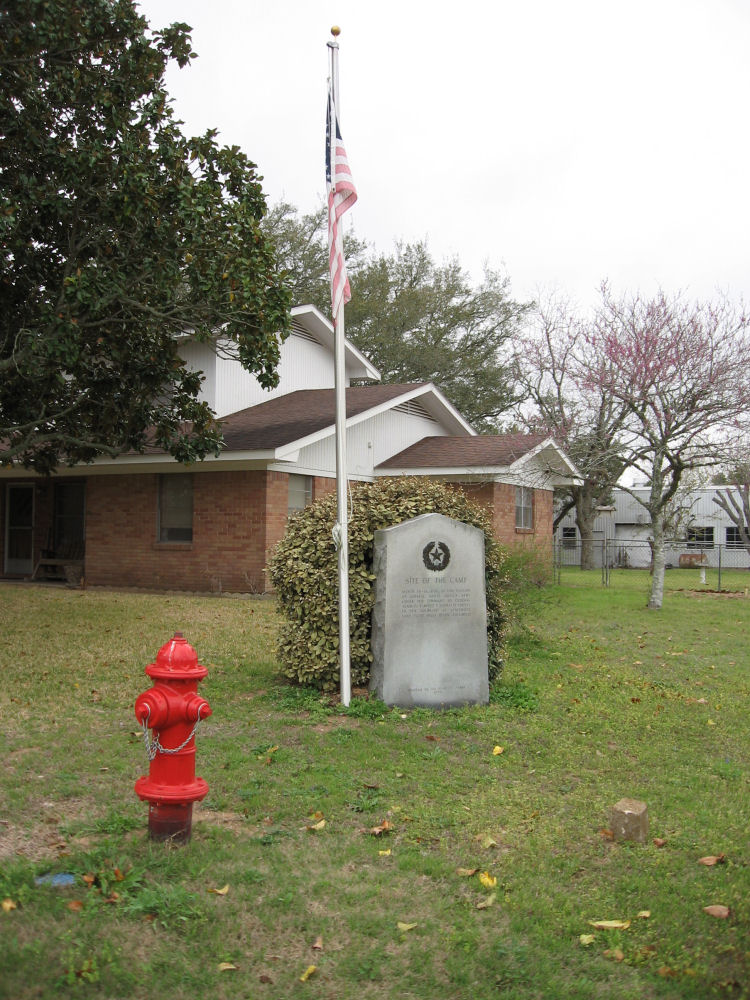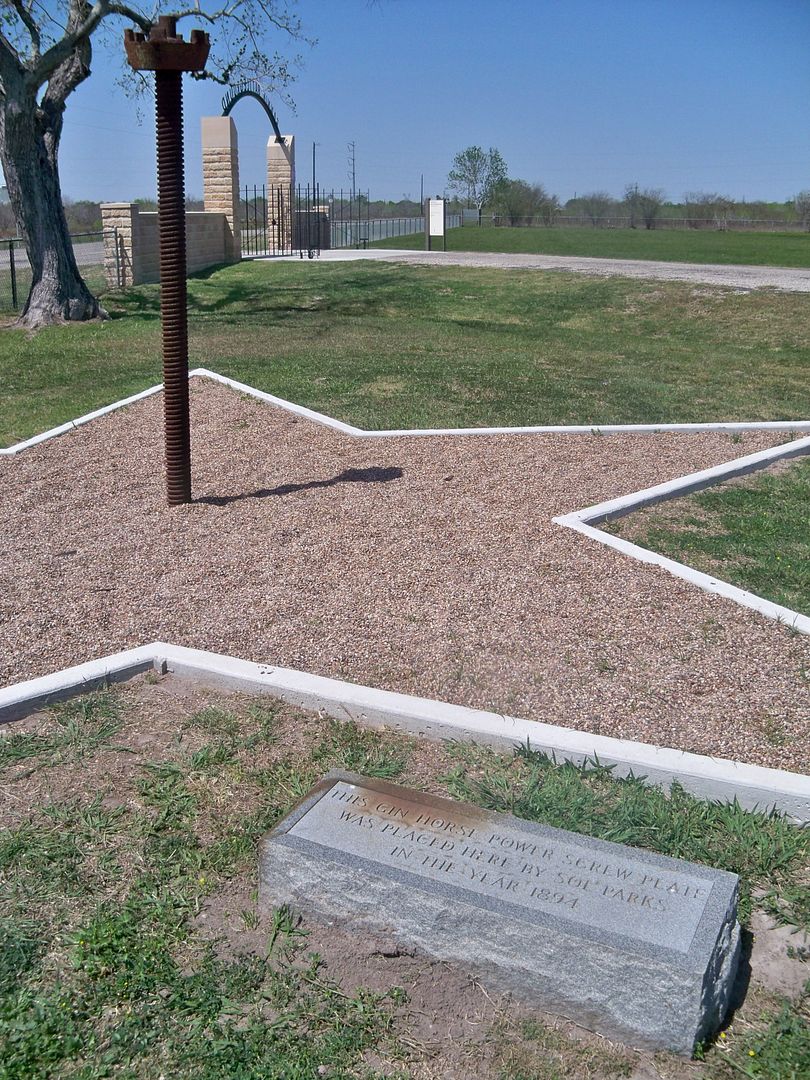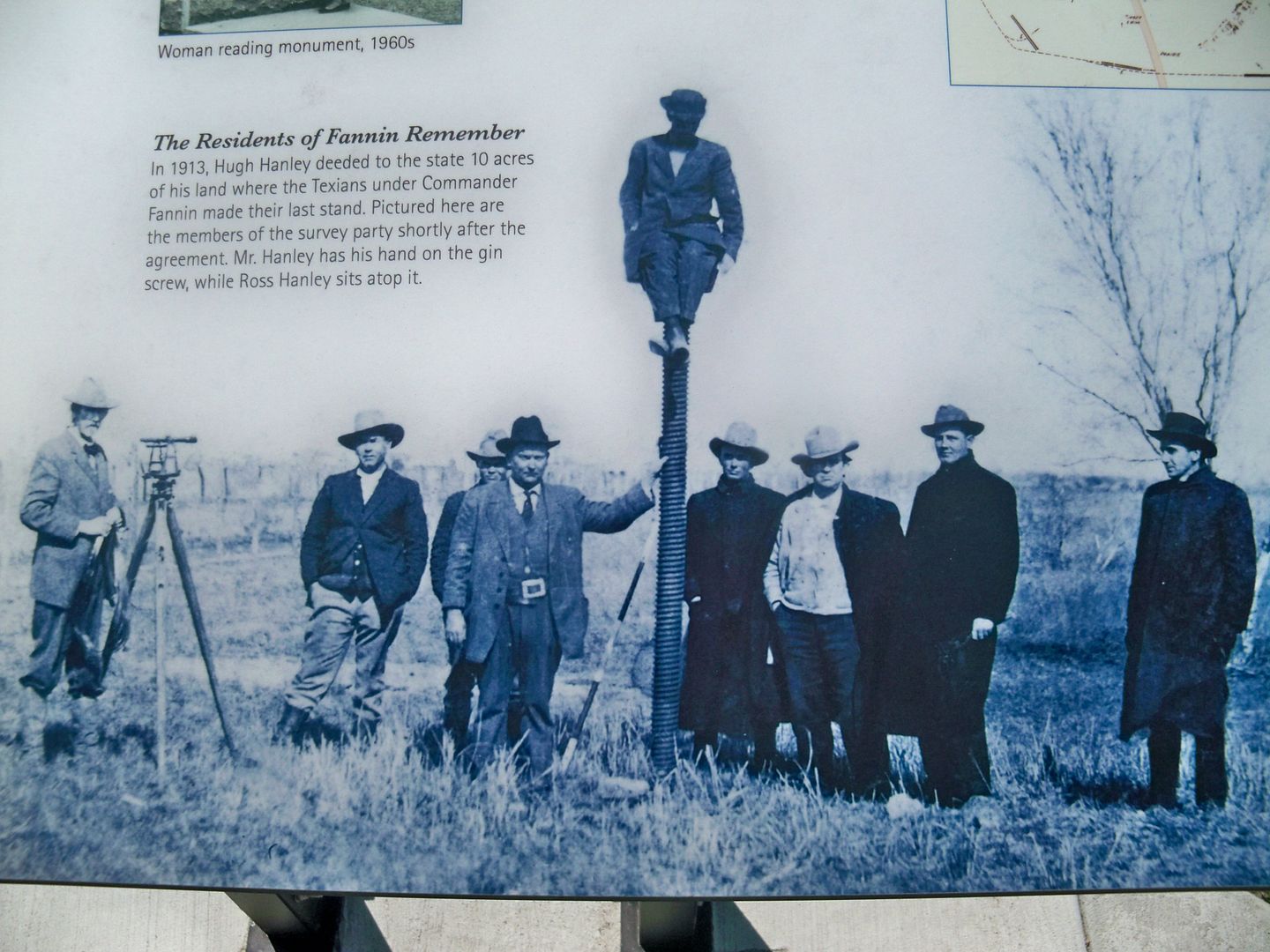Dillard Cooper's Remembrances of the Fannin MassacreOn the morning of the 27th of March, 1836, about daylight, we were awakened by the guards, and marched out in front of the fort, where we were counted and divided into three different detachments, We had been given to understand that we were to be marched to Capono, and from there shipped to New Orleans. The impression, however, had in some way been circulated among us, that we were to be sent out that morning to hunt cattle; though I thought at the time that it could not be so, as it was but a poor way, to hunt cattle on foot.
Our detachment was marched out in double file, each prisoner being guarded by two soldiers, until within about half a mile southwest of the fort, we arrived at a brush fence, built by the Mexicans. We were then placed in single file, and were half way between the guard and the fence, eight feet each way. We were then halted, when the commanding officer came up to the head of the line, and asked if there were any of us who understood Spanish. By this time, there began to dawn upon the minds of us, the truth, that we were to be butchered, and that, I suppose, was the reason that none answered. He then ordered us to turn our backs to the guards. When the order was given not one moved, and then the officer, stepping up to the man at, the head of the column, took him by the shoulders and turned him around.
By this time, despair had seized upon our poor boys, and several of them cried out for mercy. I remember one, a young man, who had been noted for his piety, but who had afterwards become somewhat demoralized by bad company, falling on his knees, crying aloud to God for mercy, and forgiveness. Others, attempted to plead with their inhuman captors, but their pleadings were in vain, for on their faces no gleam of piety was seen for the defenseless men who stood before them. On my right hand, stood Wilson Simpson, and on my left, Robert Fenner. In the midst of the panic of terror which seized our men, and while some of them were rending the air with their cries of agonized despair, Fenner called out to them, saying: "Don't take on so, boys; if we have to die, let's die like brave men."
At that moment, I glanced over my shoulder and saw the flash of a musket; I instantly threw myself forward on the ground, resting on my hands. Robert Fenner must have been instantly killed, for he fell with such force upon me as almost to throw me over as I attempted to rise, which detained me a few moments in my flight, so that Simpson, my companion on the right, got the start of me. As we ran towards an opening in the brush fence, which was almost in front of us, Simpson got through first, and I was immediately after him. I wore, at that time, a small, round cloak, which was fastened with a clasp at the throat. As I ran through the opening, an officer charged upon me, and ran his sword through my cloak, which would have held me, but I caught the clasp with both hands, and tore it apart, and the cloak fell from me. There was an open prairie, about two miles wide, through which I would have to run before I could reach the nearest timber, which was a little southwest of the place from where we started.















